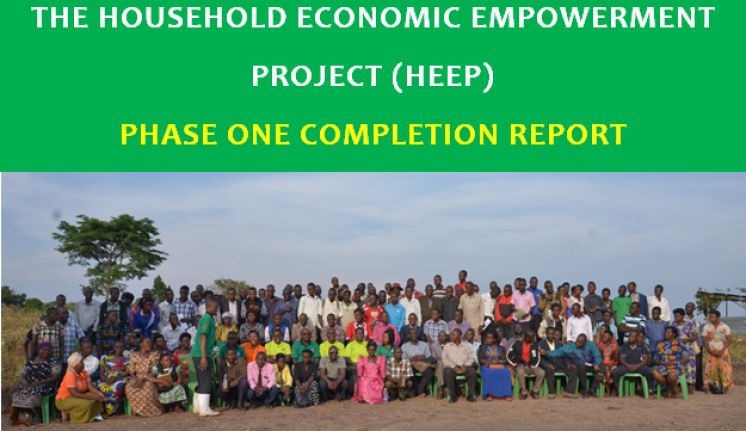AFRISA and MIT designed a joint project Household Economic Empowerment Project -HEEP) to appropriate their in partnership. HEEP was designed to address issues of income insecurity (unemployment & underemployment) and food insecurity; targeting 100 beneficiaries in targeted commuintiy in Mubemde district.
The first phase of the project required that 100 benefiaciaries are mobilized, sensitized, ane enrooled for the AFRISA programs. This has been successfully done, and a total of 129 trainees have been enrolled to be skilled in three ( Bees, piggery & Poultry ) livestock value chains intergrated with crop production, business skills, social and community helath skills.
The training will be conducted in Kijuuya village at Malku training site.
ACKNOWLEDGEMENT
We aknowlege the project funder and particularly Dr. Sharon Brown for the great love she has towards God’s people in Kijuya and neigbouring villages.
We acknowledge the immense contribution of the MALKU team (Uganda) who have been a tremendous resource in coordination, mobilization and sensitization of participants, during this first phase of the project.
AFRISA will also like to recognize the mentorship received from the leadership of CoVAB that is, the principal Prof. John D. Kabasa as well as the Dean School of Veterinary Medicine and Animal Resources Prof. Anthony Mugisha.
The exercise had to involve many leaders ( political, religious, opnion leaders and helders among others) and all are lauded for their contribution to the success of this project.
We would also like to salute the men and women of the AFRISA secretariat who have been the back bone to the implementation of this project phase; these are; Dr. Kansiime Michael, Dr. David K Lubega, Dr. Agaba Joseph, Dr. Isiko Joshua, Dr. Kateregga Julius, Ms. Lydia Namukomazi, Mr. Kabwiso Esau, Mr. Peter Kirangwa, and Mr. Muwanga Douglas.
1.0 HEEP BACKGROUND
The Africa Institute for Strategic Resource Services (AFRISA) is an innovation and partnership platform in Makerere University that was formed to deliver transformation through Skills, Science, Technology and Innovations (SSTI) to communities. AFRISA is deliberately promoting agriculture led transformation for “Healthier and Wealthier communities in Africa; through the SPEDA (Skills for Production, Entrepreneurship, Development and Accreditation) model.
Malku Institute of Technology (MIT) is an international institution whose goal is to improve the level of rural youth employment and national security in across African countries. MIT focuses on achievement of sustainable rural development through; (1) comprehensive agricultural training program (CATP), and (2) Agro- Packs for sustainable Youth enterprise development.
Both AFRISA and Malku Institute of Technology (MIT) partned together so to address Africa’s development challenges particularly those related to rural communities. Both parties are set out to jointly implement the “Household Economic Empowerment Project (HEEP)’.
The Household Economic Empowerment Project (HEEP) was designed by the Africa Institute for Strategic Resource Service and Development (AFRISA) in partnership with Malku Institute of Technology (MIT). The project was designed to address issues of income insecurity (unemployment & underemployment) and food insecurity. The goal of the HEEP is “To improve Household income and Food security in the target community (Mubende District)”; and its objectives are; (1) Mobilize, sensitize and recruit 100 farmers into the Project; (2) Train and equip the 100 selected participants with Practical skills and Principles of Production and business in selected integrated livestock and crop commodity value chains; (3) Facilitate the development of participants’ individual/Household enterprises through AFRISA Nurturing program and provide technical supervision support during the establishment of demonstration units at the training center; and (4) Assess individual enterprises and Accredit Participants; awarding them with an Artisan Certificate of AFRISA-College of Veterinary Medicine Animal Resources and Bio security (COVAB) Makerere University.
This project was designed to be implemented in four phases, and these are;
- Mobilization, Sensitization, recruitment and Training Needs Assessment
- Knowledge Transfer (Training) and Commissioning
- Enterprise Establishment and Nurturing
- Assessment and Accreditation
This write up is a phase one (Mobilization, Sensitization, recruitment and Training Needs Assessment) completion report. Phase one further subdivided into two sub-phases and these are
- Mobilization and sensitization of Leaders.
- Sanitization and recruitment of trainees.
2.0 MOBILIZATION AND SENSITIZATION OF LEADER
2.1 Mobilization of Leaders
Malku Institute of Technology (MIT) conducted a mobilization exercise for leaders in Kitenga and neighboring communities, Mubende District. The mobilized leader convened at gazette place for the project (HEEP) sensitization engagement.
2.2 Sensitization of Leaders
The Africa Institute for strategic Resource Services and Development (AFRISA) together with Malku Institute of Technology (MIT) sensitized all mobilized leaders in the target communities. This activity targeted political, religious, cultural and opinion leaders in Kitenga subcounty and the neighboring communities. The objectives of sensitizing leaders were;
- a) To create awareness of the project (HEEP) among leaders in the target communities.
- b) To empower leaders to mobilize their communities to be part of the project (HEEP) beneficiaries.
During the sensitization meeting both AFRISA and MIT made presentation to the leaders so as to ensure the understand the how residents can benefit from the project.
A total of sixty-Eight (68) leaders from different village, parishes, sub counties and in different capacities; turned up for the meeting. All questions raised by the leaders were answered jointly by AFRISA and MIT. Out of those who turned up, about 17% were female leaders. Generally, the leaders were stratified as indicated in figure 1.
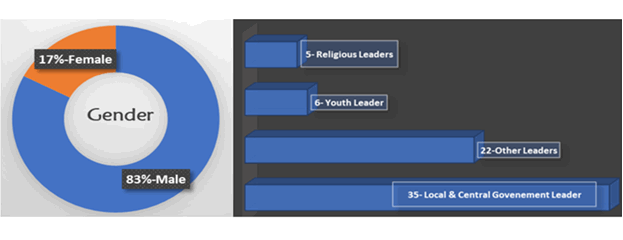
2.3 Assessment of training site
Following the sensitization of leaders, AFRISA officers assessed the suitability of the training site.
2.4 Pictorials Representation
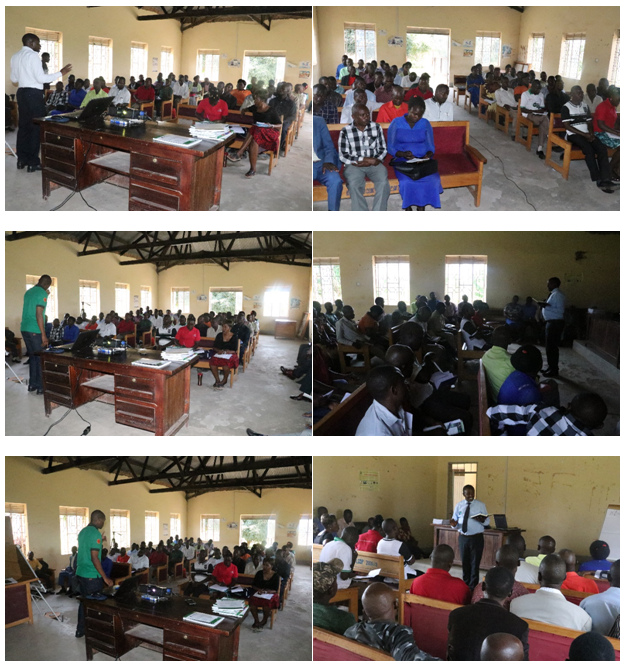
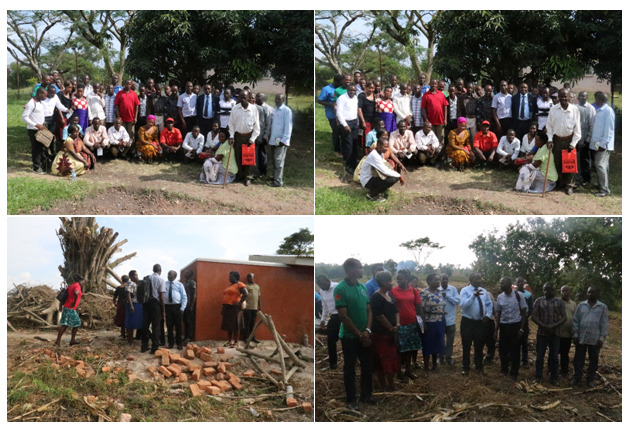
2.5 Resolution
- Leaders were tasked to go and mobilize their communities.
- A period of 10 days was given to enable leader mobilize residents in their communities. This implied that by 19th February 2019, potential trainees would be ready for sensitization at Malku premises in Kijuuya Village.
- Eligibility of potential trainees was opened to all interested individual with restriction of village as long as they were within and nearby the target community.
3.0 SENSITIZATION & ENROLLMENTS OF TRAINEES
3.1 Sensitization Potential Participants
All residents that had been mobilized by the leaders, gathered together at Malku and were sensitized on issues relating to the project (HEEP) by AFRISA officers. A total of 155 farmers were senstitized.
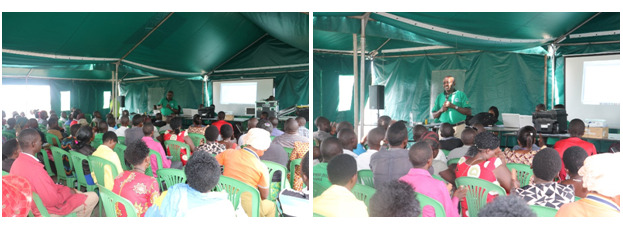
3.2 Opportunity Identification
Participants were on the available agricultural income generating opportunities with in the area. Potential trainees were guided on how to identify economic opportunities with highest comparative advantage. Potential trainees with similar selected enterprises were grouped together into a training cohort (value chains) for further training management.
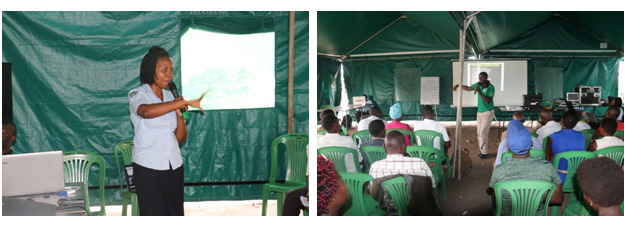
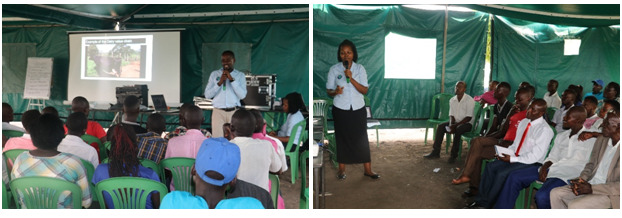
3.3 Opportunity Scope
Based on the farmers’ preference and the scoping study that had been previously done, farmers were grouped into three livestock value chains and there are: (1) Bee Value Chain, (2) Piggery Value Chain, and (3) Poultry Value Chain. In addition to the livestock value chains, trainees identified major crops that would easily be integrated with the above selected value chains.
3.4 Application
All potential trainees applied for a course in the value chain of choice by filling the AFRISA Artisan Application Form (See Appendix 1). After application, all potential trainees were interviews by value chain experts and business coaches in their respective enterprise of choice. A total 130 applied to be part of the course.
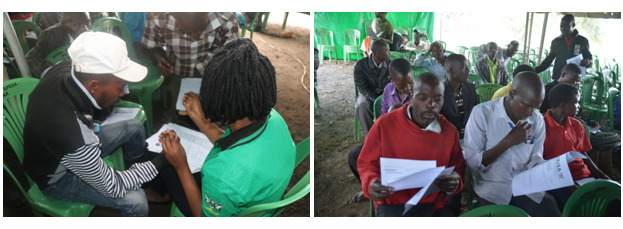
3.5 Interviews and Selection
The success of HEEP depends on the level of commitment by participants and their willingness to invest their time and resources to start enterprises in sectors of their choices. All potential participants that had shown interest by application, were subjected to an interview and the AFRISA selection criteria. The purpose of the interview was to screen trainees so in order to get those that will wholesomely benefit from the project. It also meant to select against unserious participants. A total of 129 individuals were interviewed and all passed the interview as highlighted in the table.

All selected trainees are:
- Having a starting point in relation to the area of study.
- Able to take instructions in Luganda/English and demonstrate physical ability to engage in production and business after the training.
- Willing to demonstrate high motivation, patriotism
- Willing to learn and engage with AFRISA-Makerere University in the HEEP project.
- Willing to develop or upgrade his /her own household/individual enterprise as a condition required to complete the course
- Willing to uphold the code of conduct, ethics, rules and regulations of the university and those formulated by the implementing team.
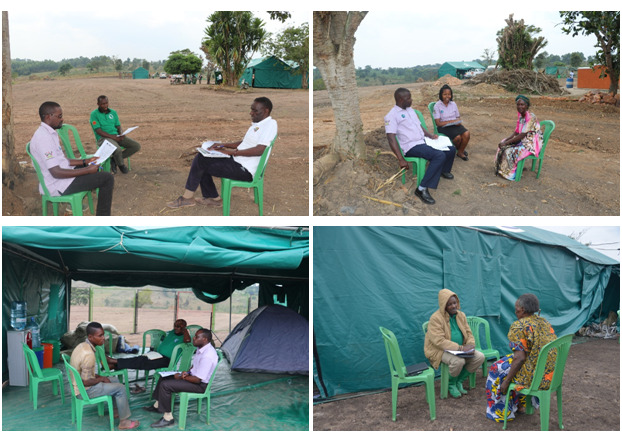
3.6 AFRISA REGISTRATION AND ENROLLEMENTS
Following interviews and selection, all participants were registered in the university system by filling a registration form.
All university register participant is now fully enrolled to take a course with the Africa Institute for Strategic Resource Services and Development (AFRISA). Table 2 summaries statistic of the enrolled trainees per value Chain.

Statistics indicated at individuals of different region were enrolled. The trainees enrolled represented 26 villages, 11 parishes and 9 sub-counties. The lists of enrolled students/ trainees are indicated highlighted.
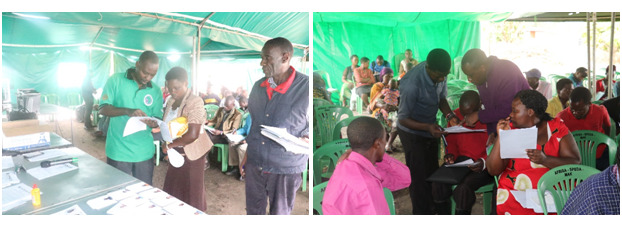
3.7 Training Needs Assessment
All AFRISA enrolled trainees were asked to respond to a questionnaire (Training needs Assessment tool) so as to generate the knowledge and skills gaps among the trainees. The results of training needs assessment are going to be used in developing a tailor-made curriculum. The tailor-made manual shall incorporate crop integration, community health and rural sociology.
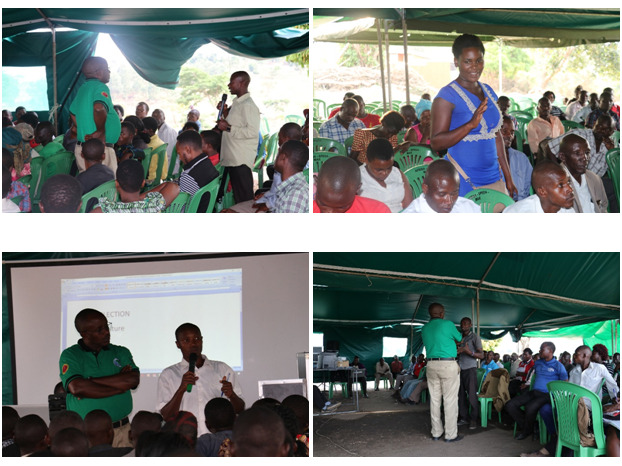
PREPARED BY KANSIIME MICHAEL
HEAD SECRETARIAT
AFRICA INSTITUTE FOR STRATEGIC RESOURCE SERVICES AND DEVELOPMENT (AFRISA)- MAKERERE UNIVERSITY
drkanmich@gmail.com / +25 6776763330

